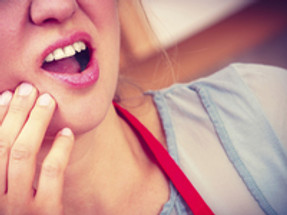Posted by Lisa Edwards on May 16th 2016
6 Most Commonly Asked Questions Regarding Bruxism and TMJ
Night grinders who suffer long term effects of grinding their teeth (bruxism) can also experience TMJ (Temporomandibular joint) disorder. Let’s take a look at some questions that are commonly asked by night grinders regarding bruxism and TMJ.
What is Bruxism?
Bruxism is a condition in which you grind, gnash or clench your teeth. If you have bruxism, you may unconsciously grind your teeth at night or clench your teeth together during the day.
What is TMJ disorder?
TMJ disorder is a painful condition due to misalignment of the joint where the lower jaw meets the skull.
What Does Bruxism Have To Do With TMJ ?
When teeth grinding is allowed to progress, much of the teeth surface is lost so that the bite collapses, and the temporomandibular joint is left to endure the damage. Bruxism can be a symptom of, cause, or ever worsen TMJ.
Does TMJ lead to Bruxism?
TMJ is often caused by misaligned teeth, which can also be a cause Bruxism.
How do bruxism and TMJ compare?
The similar symptoms of TMJ and bruxism can include:
Symptoms |
Bruxism |
TMJ |
| Anxiety | x | x |
| Stress | x | x |
| Earache | x | x |
| Headache | x | x |
| Sensitive Teeth | x | x |
| Insomnia | x | x |
| Sore/Painful Jaw | x | x |
| Damaged Teeth | x | x |
| Worn Tooth Enamel | x | x |
| Tight Jaw Muscles | x | x |
| Chewing Cheek | x | x |
| Tongue Indentations | x | x |
| Jaw Clicking/Popping | x | |
| Jaw Locking | x |
Because many of the symptoms are so similar it is nearly impossible to self diagnose. Bruxism is an involuntary action which happens mostly at night while sleeping, in fact, most people are not even aware that they are grinding their teeth. A TMJ disorder is completely another thing, the patient will experience pain on the area of the joints and may find it a little difficult to move their jaws.
What to do?
There is no pill that specifically prevents you from grinding your teeth at night. However, there are several treatments and devices that can help you control symptoms and prevent damage to your teeth.
- Address the root cause
- Wear a custom fit mouthguard
- Avoid caffeine and alcohol
- Exercise the Jaw
- Don’t chew on objects


